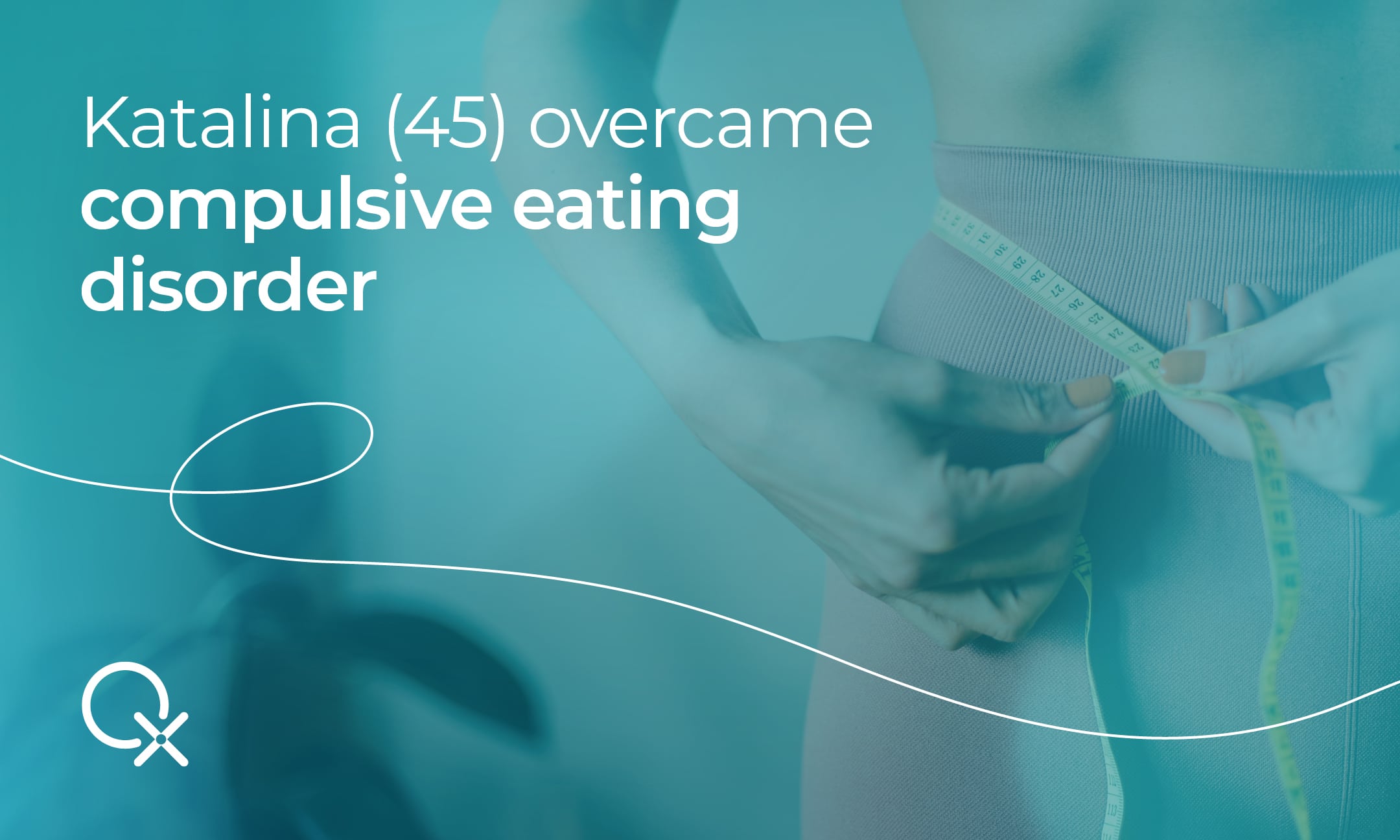
Unresolved emotional trauma can have a profound impact on our bodies, including our relationship with food. Having struggled with a compulsive eating disorder since she was 15, Katalina (45) felt as if she had tried every diet in the book when she finally turned to Margret Margrétardóttir for regular biofeedback sessions. Now 27 kg lighter and happier than ever, she shares her journey of healing and transformation.
Margret: Compulsive eating, or binge eating disorder, is a type of eating disorder where individuals eat excessive amounts of food in a short period and beyond the point of feeling full.
Margret: Many people think that compulsive eating is caused by a simple lack of willpower. But that’s just not true. Experts agree that there are deep-seated psychological and emotional factors at play.
Katalina: That’s a great way of explaining it. I spent years feeling trapped in a cycle I couldn’t break. It was this endless battle between my emotions and my cravings. No matter how hard I tried to control myself, the urge to eat way more than I needed always won. I was so relieved when Margret told me that biofeedback could finally help me turn that page.
Margret: Biofeedback uses advanced technology to decipher the body’s responses to stress. It uncovers underlying issues that are negatively affecting our mental and physical well-being, of which compulsive eating disorder is most definitely a symptom. Especially if you combine it with other methods, biofeedback sessions can address emotional trauma like no other method can. In Katalina’s case, we uncovered an unresolved issue linked to the sudden death of her father when she was 15.
Katalina: I was actually surprised to learn that about myself. I loved my father so much, and it took me years to move on. Or at least that’s what I thought, because it turned out I hadn’t moved on at all.
Margret: Losing a significant person can trigger feelings of abandonment, especially in children. Some then use excessive eating as a coping mechanism to manage overwhelming emotions. Additionally, trauma can distort your body image and self-worth, fueling an unhealthy eating pattern as a means of punishing yourself.
Katalina: That’s true. A lot of the compulsive eating started after my father’s passing. He was my biggest supporter, always cheering me on at my sports events. But after he died, I lost interest in everything. I felt truly and utterly alone.
Recognizing the profound impact of Katalina’s trauma, Margret shifted the focus during their biofeedback sessions towards untangling the emotional knots associated with her father’s absence.
Margret: Our bi-weekly biofeedback sessions became a cornerstone for Katalina’s emotional and physical transformation. To optimally reshape her mindset, I combined quantum biofeedback with forgiveness therapy techniques. Once I started seeing progress, I used my biofeedback device to do a nutrition profiling on Katalina, so that I could design a personalized detox program.
Katalina: I’ve never felt more amazing. And I believe I look the part, too <laughs>. I’ve lost 27 kg already. Because I feel so energized, I’m committed to keeping the weight off. I love my daily walks and I’m considering taking up sports again. But perhaps most importantly, I find myself thinking about food less and less often. When I do eat, I appreciate and savor my meal so much that I’m much more mindful about feeling full.
Katalina: It’s been a combination of factors, really. There’s Margret’s guidance, the biofeedback sessions, and my determination to put my well-being first. But I believe discovering self-love and acceptance has been the strongest driving force behind it all.
Only six months into her journey, Katalina’s transformation has already been astounding. She is not only healthier physically but also underwent profound emotional growth.
“Releasing emotional blockages, accepting yourself, and finding joy in life can pave the way for lasting change no matter who you are or what you’ve been through,” Margret concludes.
Margret Margrétardóttir is a biofeedback expert and teacher at the QX WORLD Health Academy.
Katalina (45) is a paralegal from Portugal where she lives with her husband and their two children.
+1 (989) 681-1063
+1 (856) 322-8589